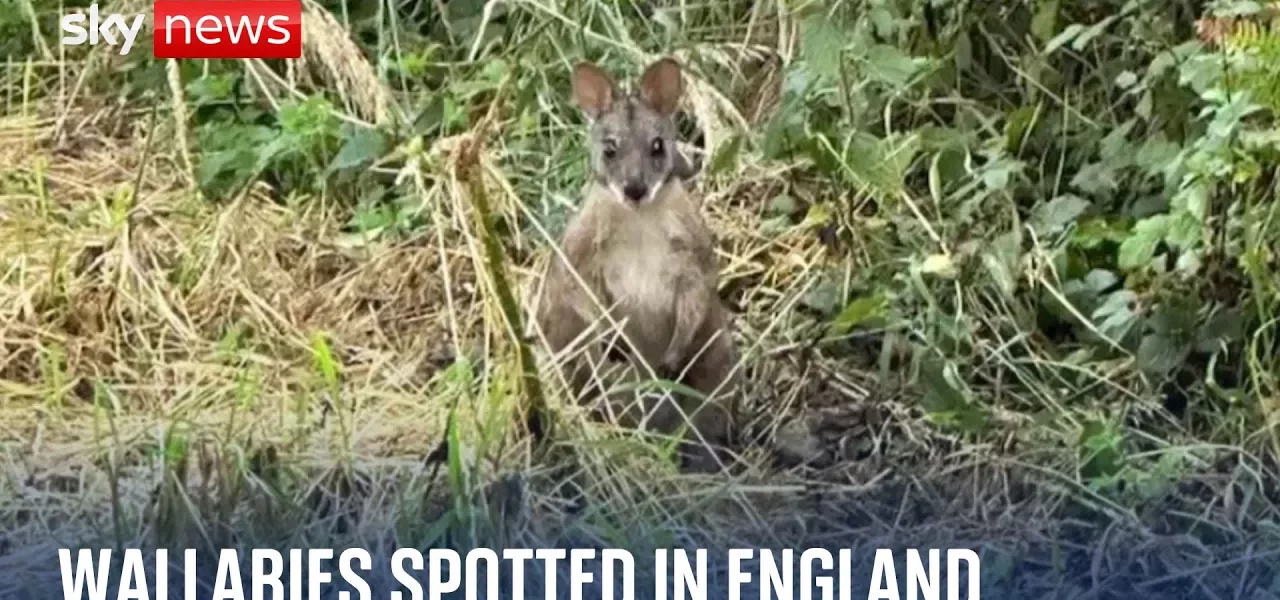Surprising Sightings of Wallabies in the UK

Discover the unexpected presence of wallabies in the UK, their origins from Australia, and the fascinating stories of their sightings in Nottingham and beyond.
Introduction
Wallabies, often mistaken for smaller kangaroos, have made a surprising appearance in the United Kingdom, particularly in areas like Nottingham. These elusive marsupials, originally native to Australia, have adapted remarkably to the British climate, raising questions about their presence and survival in a non-native environment. This article delves into the sightings of wallabies in the UK, their origins, and the implications for local wildlife conservation.
The Fascinating World of Wallabies
Wallabies belong to the macropod family, which translates to “big foot.” While they are primarily found in Australia and Tasmania, their unexpected presence in the UK has sparked curiosity among wildlife enthusiasts and experts alike.
Characteristics and Habitat
Wallabies are small to medium-sized marsupials known for their powerful hind legs and distinctive hopping gait. They thrive in various habitats, including grasslands, forests, and scrublands. In the UK, wallabies have been spotted in long grasses, reminiscent of their native habitats.
Adaptability to the UK Environment
Despite being originally from Australia, wallabies have shown a remarkable ability to adapt to the UK’s climate. The similarities between Tasmania’s environment and certain British regions, particularly Nottinghamshire, provide a conducive habitat for these animals. Factors contributing to their adaptability include:
- Similar climatic conditions
- Availability of food sources such as grasses and shrubs
- Absence of natural predators that would typically threaten them in Australia
Recent Sightings in Nottingham
Wallabies have been sighted in various locations around Nottingham, raising interest and excitement among local residents and wildlife watchers.
Notable Sightings
One of the most intriguing sightings occurred when a wallaby was photographed near Culverton. Golfers also reported observing a wallaby hopping along the edge of their course, further indicating the presence of these marsupials in the area.
Experts Weigh In
Wildlife experts suggest that these sightings may not be isolated incidents. For instance, one expert estimated that a wallaby would have had to travel over 14,000 hops to reach certain areas in Nottingham, indicating the possibility of multiple wallabies escaping captivity or being released into the wild.
The Origins of Wallabies in the UK
Wallabies in the UK are believed to have originated from private ownership. Under current legislation, individuals can own wallabies similarly to pets, such as cats or dogs. However, many wallabies managed to escape or were released, leading to their growing population in certain areas.
Challenges of Captivity and Escape
Wallabies are known for their agility and ability to escape enclosures. Their escape artist nature has caused concern among conservationists regarding their impact on local ecosystems and the challenges of tracking their population.
Conservation Implications
As the wallaby population in the UK continues to grow, conservationists are keen to understand the extent of their presence. They encourage anyone who spots a wallaby to report the sighting, as this data is crucial for assessing their impact on local wildlife.
Conclusion
The presence of wallabies in the UK, particularly around Nottingham, offers a unique glimpse into how wildlife can adapt and thrive in new environments. Their unexpected sightings have captivated local communities and raised important questions regarding wildlife management and conservation. If you encounter a wallaby, conservationists urge you to document the sighting and report it, contributing valuable information to help understand this fascinating phenomenon.
For more information on wildlife conservation and animal sightings, check out our related articles on wildlife conservation and animal sightings in the UK.
“`




